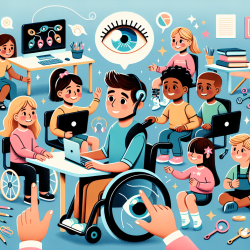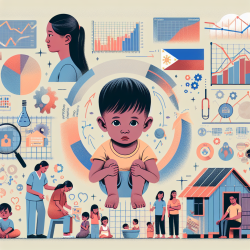Enhancing Outcomes for Children with Disabilities During Disasters and Pandemics
In light of recent global challenges, including natural disasters, terrorism, and the COVID-19 pandemic, the vulnerabilities of children with disabilities have become increasingly evident. The scoping review titled Children and Adolescents with Disabilities and Exposure to Disasters, Terrorism, and the COVID-19 Pandemic: a Scoping Review offers critical insights into the unique challenges faced by these children and their families. Here, we explore the key findings and suggest practical applications for practitioners working with this population.
Key Findings from the Research
The scoping review highlights several significant findings:
- Children with disabilities and their families have higher levels of disaster exposure and lower levels of disaster preparedness.
- They receive less recovery support due to longstanding discriminatory practices.
- The COVID-19 pandemic has had disproportionate negative impacts on their mental health and functioning.
- There is a critical need for trauma-informed treatment practices and disaster preparedness planning tailored to children with disabilities.
Implementing Research Outcomes
Practitioners can enhance their skills and improve outcomes for children with disabilities by incorporating the following strategies:
1. Develop Individualized Disaster Preparedness Plans
Children with disabilities require customized disaster preparedness plans that consider their specific needs. Practitioners should work with families to create these plans, ensuring they include:
- Emergency communication strategies
- Medical supply and medication management
- Evacuation procedures
- Access to assistive technologies
2. Promote Trauma-Informed Care
Implementing trauma-informed care practices is essential. Practitioners should:
- Understand the impact of trauma on children with disabilities
- Provide support that emphasizes safety, trustworthiness, and empowerment
- Offer mental health resources and referrals
3. Advocate for Policy Changes
Advocacy is crucial in addressing systemic issues that affect children with disabilities. Practitioners should:
- Engage in policy discussions to improve disaster preparedness and response for this population
- Collaborate with organizations to promote equitable resource distribution
Encouraging Further Research
There are significant gaps in the current literature, particularly regarding the long-term effects of disasters and pandemics on children with disabilities. Practitioners are encouraged to engage in or support further research to:
- Identify effective interventions and support mechanisms
- Examine the role of telehealth in providing continuous care during crises
- Evaluate the impact of remote learning on educational outcomes
By integrating these research outcomes into practice, practitioners can better support the health and well-being of children with disabilities during and after disasters.
To read the original research paper, please follow this link: Children and Adolescents with Disabilities and Exposure to Disasters, Terrorism, and the COVID-19 Pandemic: a Scoping Review.










